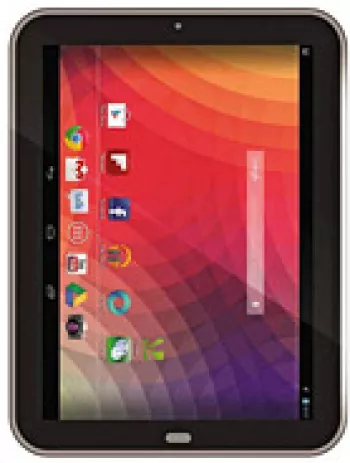
Network
The Karbonn Titanium Hexa supports GSM and HSPA technologies, ensuring connectivity for 2G and 3G bands. Specifically, the 2G bands cover GSM 850, 900, 1800, and 1900 for both SIM 1 and SIM 2, while the 3G band features HSDPA with internet speeds rated at HSPA 42.2/5.76 Mbps. GPRS and EDGE are also supported, enhancing network capability in areas with limited 3G coverage.
Launch
Announced in March 2014, the Karbonn Titanium Hexa was released in April 2014. Though now discontinued, at the time of its launch, it marked a significant step forward for Karbonn into the world of mid-range smartphones, offering competitive specifications at an attractive price point.
Body
The device features sleek dimensions of 154 x 76.8 x 6.9 mm, making it a portable yet robust device for daily use. Although the weight is not specifically listed, the dimensions suggest a lightweight profile. The phone supports dual SIMs, giving users the flexibility to manage two numbers on one device.
Display
The Titanium Hexa sports a 5.5-inch IPS LCD display with impressive Full HD resolution of 1080 x 1920 pixels, delivering about 401 pixels per inch. This results in vibrant colors and sharp details, suitable for both media consumption and general usage while maintaining a 70.5% screen-to-body ratio.
Platform
The phone operates on the Android 4.4.2 KitKat OS, supported by a Mediatek MT6591 chipset. It boasts a hexa-core 1.5 GHz Cortex-A7 processor, coupled with a Mali-450MP4 GPU, which collectively offer smooth multi-tasking and decent graphics performance for gaming and video playback.
Memory
With 2GB of RAM and 16GB of internal storage, the Titanium Hexa provides adequate space for apps and moderate storage for media. Moreover, it includes a microSDHC card slot for expandable storage, which is essential for users requiring additional space for photos, videos, and apps.
Main Camera
The smartphone features a 13 MP rear camera with autofocus and LED flash. It supports panoramic shooting and is capable of recording video content, allowing users to capture vibrant photos and videos even in low light conditions.
Selfie Camera
On the front, there's a 5 MP selfie camera, catering to the needs of video calling and casual photography. Though not equipped with advanced features, it sufficiently meets basic requirements for personal use.
Sound
The device is equipped with a loudspeaker and a 3.5mm headphone jack, maintaining traditional audio connectivity methods. This ensures compatibility with a wide range of audio accessories without needing adapters.
Communications
Connectivity options include Wi-Fi 802.11 b/g/n with hotspot functionality, Bluetooth 4.0 with A2DP for wireless data transfer, and GPS for location services. The absence of NFC and radio, however, limits some modern connectivity features. For wired connections, a microUSB 2.0 with OTG support is available, permitting connection to various peripherals.
Features
The device includes essential sensors such as an accelerometer and proximity sensor, which enhance the user experience by enabling features like automatic screen rotation and call management functionalities.
Battery
Powered by a 2050 mAh Li-Po battery, the Karbonn Titanium Hexa delivers sufficient power for moderate daily use. Although not replaceable, this capacity aligns with the mid-range status at the time of release, balancing longevity and device performance.
Miscellaneous
The phone was offered in two classic colors: Black and White. Priced approximately at 200 EUR, it was targeted at budget-conscious consumers seeking a balance of performance and affordability.
Conclusion
The Karbonn Titanium Hexa stood out in the mid-range smartphone market with noteworthy features and performance capabilities for its time. Although discontinued, it reflected a commendable effort by Karbonn to deliver engaging user experiences through robust hardware and versatile software. As technology progresses, devices like the Titanium Hexa serve as historical milestones in the rapidly evolving smartphone landscape.
Key Features of Karbonn Titanium Hexa
- Dual SIM functionality
- Slim design with 6.9 mm thickness
- Large 5.5-inch IPS LCD display with 1080 x 1920 resolution
- Powered by Hexa-core 1.5 GHz processor
- 16GB internal memory with 2GB RAM
- Expandable storage via microSDHC
- 13 MP main camera with autofocus and LED flash
- 5 MP front camera for selfies
- Android 4.4.2 (KitKat) operating system
- Connectivity options include Wi-Fi, Bluetooth 4.0, GPS, and microUSB 2.0 with OTG
- 3.5mm audio jack for headphones
- Sensors include accelerometer and proximity
- Available in Black and White colors
Karbonn Titanium Hexa Drawbacks
- 3G only support, no 4G LTE connectivity
- No NFC capability
- No FM radio feature
- Rather low battery capacity at 2050 mAh
- Released with Android 4.4.2 (KitKat), which is now outdated
- No information available on device weight
- Limited internal storage of 16GB may require frequent use of microSD card
- Discontinued model, potentially lacking future support


View Also
More Phones
All Rights Reserved +14268 Phones © Mobilawy 2025

























